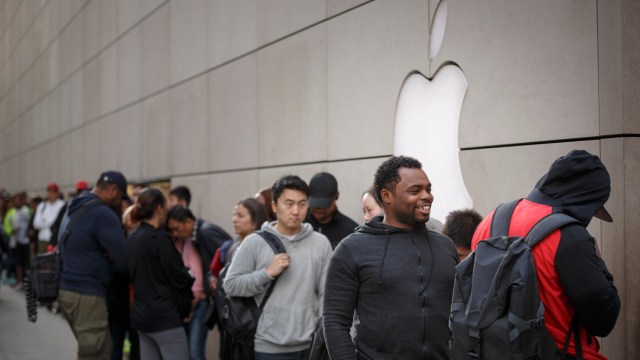Tragedy at Mecca: Why Do Some Show Cruelty Instead of Empathy?

Every morning I rise an hour before I need to head to the gym. Ten to 15 minutes of Qigong; head to the kitchen; flip the electric teakettle; our three furry roommates circling my feet in anticipation. Ground beans; pour water into Aeropress; stir, empty into mug. Reveal the raw meat; enough space between felines so the stalker leaves the other two alone. I sit with my coffee on the balcony; crack open a book — dedicating a half-hour to waking up slowly.
There’s nothing unique about my morning ritual. It probably differs from yours in content, but not in the fact that we all have a way to prepare for the day. I won’t subject you to my evening or pre-class rituals. While the word ‘ritual’ is often reserved for religious occasions, events practicing this or that spiritual option are merely personal rituals played out publicly. We love the dependability of patterns. We lean on the expectable, recoiling in its absence.
Much human suffering and bigotry begins when one’s ritual differs from our own. For example, I’ve never understood those who jump from sleep to rush out the door. I need that hour to wake with the sun; much stress is invoked when rushed. Yet late sleepers argue that they value that extra hour more than an easeful morning. We might tilt our heads at the different approaches, but we can also respect the other’s decision.
When a person of faith dehumanizes those that believe in another, it displays the competitive nature of human thinking.
Morning rituals are benign in this sense. When translated to religion, another story unfolds. We can debate whether it’s the media focused on outliers or a genuine growing intolerance, but that doesn’t change the fact that my social media feeds are lately inundated by disrespect and a complete lack of basic human kindness when one’s ritual differs from another’s.
Last week my feed was filled with the stampede in Mina, in which over 700 Muslims were killed en route to Mecca. This annual pilgrimage is a time in Islam for community and unity — the Hajj is one of the planet’s most well-known religious gatherings, dwarfed in size perhaps only by India’s Kumbh Mela. To contemplate congregants trampling over one another just three miles shy of their destination is tragic.
Mostly I read these thoughts: heartbreaking, confusion, sadness. I don’t believe the majority of humans are bigots. Scrolling through Facebook Trending, though, other opinions rear their ugly head:
Steve Reichert: Religion- Causing death and destruction world wide since its inception
Followed by his “fans”:
Fuck ’em. The Saudis would be chopping off their heads or stoning them anyway in their public executions that the media doesn’t tell you about. It’s funny, the Saudis do it, but they’re a US ally. ISIS does it and they are the enemy. This is government hypocrisy at its finest. Me, I just hate all Muslims. I don’t discriminate.
You all are missing the point. This is an ANNUAL event. It should become WEEKLY!
Gotta admit, that’s 700 less to worry about
Reichert is a pro-gun advocate who likes to “piss off liberals.” Can’t claim surprise at his commentary, or those following him. I’ve spared sharing the Fox News feed as comments there were even crueler. That these were 700 humans means nothing, because in their eyes Muslims were long ago dehumanized. Yet atheists also jumped on the bandwagon; on the Kansas City Atheists Coalition page, the following remarks emerged:
not too much in the grand scheme of things but ugh, praise be allah for that shit right!?!?!?!?
kinda like the running of the bulls in pampalona
Ignorance and lack of sensitivity come in many forms. When a person of faith dehumanizes those that believe in another, it displays the competitive nature of human thinking; if my way is right, yours is irrelevant, therefore whatever I say about you is not harmful. A person of no faith may feel justified in denouncing all of them. What’s missing in both situations is empathy.
My ritual, good. Yours, who cares?
That is, sadly, where we end up when such sentiments are on public display. There is plenty of room for both critical thinking and open-mindedness. Rituals are important regardless of what you believe. We all have personal means of taking on life, habits, neurological patterns, ways of perceiving the world. We might not agree with the content of one’s beliefs, but to deny their humanity is immature. And this is not to deny the fact that we should critique ideologies that damage others, flagrant abuses of power, and hypocrites. Call such figures out, but don’t rob innocent pilgrims of their humanness.
On the same day as the tragedy in Mina, Pope Francis stood before Congress discussing climate change, pro-immigration policies, and poverty. Each of these topics can be measured socially, politically, and economically. Also on the table is his take on the “family” — the man has supported tolerance regarding gay marriage, less so on abortion, but these too have human and social costs.
When pilgrims tragically die while searching for meaning in life, it should give us pause to remember our own struggle…
There is a healthy way to critique religious ideals: At the same time Francis is touring America, his Church has been sending American church leaders accused of sexual abuse to South America instead of permanently removing them from service. You can’t yearn for the “family” when your leaders are helping break them apart.
This is not a bashing of his character or even a hit on Catholicism; it’s an inquiry regarding a shady administration. When Pope Francis conducts Mass or visits the homeless, we can recognize and respect the good will he’s spreading. We don’t have to agree with everything he says to understand his relevance. Publicly denouncing his rituals merely reveals one’s cruel heart.
Such is true for every religion. When pilgrims tragically die while searching for meaning in life, it should give us pause to remember our own struggle, our personal journey, and not an opportunity to sound like a pompous, ignorant fool.
—
Derek Beres, a Los Angeles-based author, music producer, and yoga instructor, looks at a range of issues affecting the world’s various spiritual communities in an attempt to sift through hyperbole and find truly universal solutions to prevalent issues facing humanity in the 21st century.
Image: STR / Getty Images





